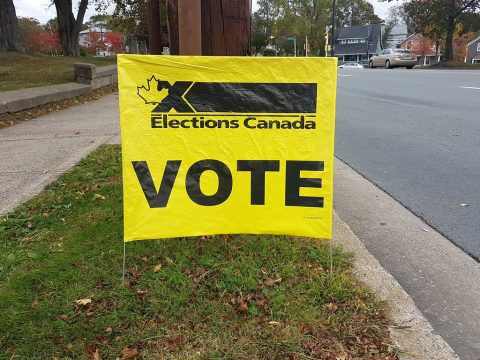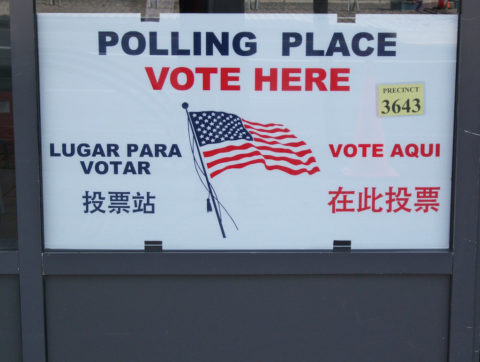In Tuesday’s NP Platformed newsletter, Colby Cosh looks at the sham election we just experienced … differently … here:

“2019 Canadian federal election – VOTE” by Indrid__Cold is licensed under CC BY-SA 2.0
What to say about a federal election in which nothing happened? Surely last night’s refusal by the Canadian public to budge an inch is more astonishing than almost any other imaginable result could be. Our last two elections were separated by exactly 700 days. During that brief time, Canada experienced a science-fiction disease pandemic with mass death and violent protests, a fairly urgent diplomatic crisis with China, a dramatic change in the U.S. presidency, a foreign-policy disaster in Afghanistan, epic Liberal scandals and constitutional strife. Canadians seem to have lived through all of this and decided that it made no difference, or no net difference, in how they wanted to vote.
Maybe this could be considered a psychological defence reaction to the surprising prospect of an election. Given the incredible result — no consecutive Canadian elections have ever been remotely this close in seat outcome — we can hardly even say “surprising and unwelcome”. Everyone knew who was responsible for calling an election. In Liberal ridings, the response seems to have been gratitude for the opportunity to vote Liberal again so soon.
In conversation with a non-representative sample of Canadian voters outside the Toronto border, it’s rare to find people who admit to voting Liberal, yet clearly enough people did yet again — nearly 20,000 of them in my riding alone. I live in Erin O’Toole’s riding, so the winner wasn’t in a lot of doubt despite him not having any spare time to campaign here. I was pleased to find over 3,600 other Durham voters willing to vote PPC this time around, giving Patricia Conlin about 5.6% of the vote. I’ve generally been a Libertarian voter all these years … at least when there’s been a Libertarian candidate to vote for … but this time around as in 2019 the Libertarians didn’t have anyone running here, so voting PPC was my best option.
The more we watch NDP Leader Jagmeet Singh campaign, the more we think, “Toronto does have an awful lot of people who ought not to be especially eager to run headlong into stuff like wealth taxes and confiscatory rates on capital gains.” The New Democrats seem increasingly determined to cement their all-urban base among youths and convinced leftists with bolshie rhetoric. Are the resentful, hopeless millions they hope to add to these stagnant forces really out there? Was this an election result that reveals a populace disaffected with neoliberal capitalism — of a kind genuinely beset by rent-seeking, cronyism and corruption — and keen on revolutionary change?
Unfortunately, the very failure of the election to yield a different result probably means that every party can treat last night as a rehearsal rather than a test. NP Platformed‘s initial instinct, which we reserve the right to throw out, is that we’ll be back at it with the same cast of characters in another 700 days or so. Everyone failed: what else is there but to follow Beckett’s dictum? “Try again. Fail again. Fail better.”
Other than Maxime Bernier, is there a federal party leader who can point to the results of this election and claim much more than a bare moral victory?







